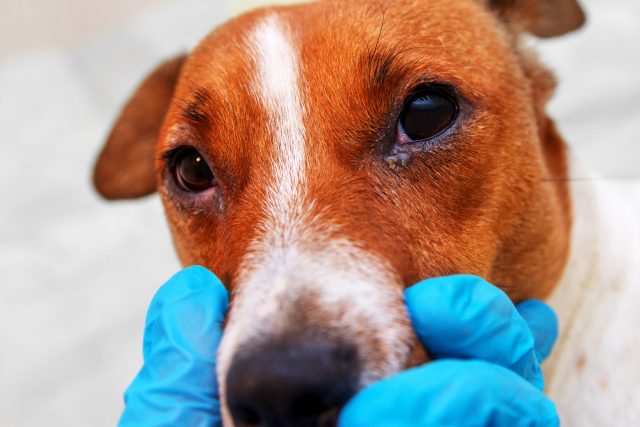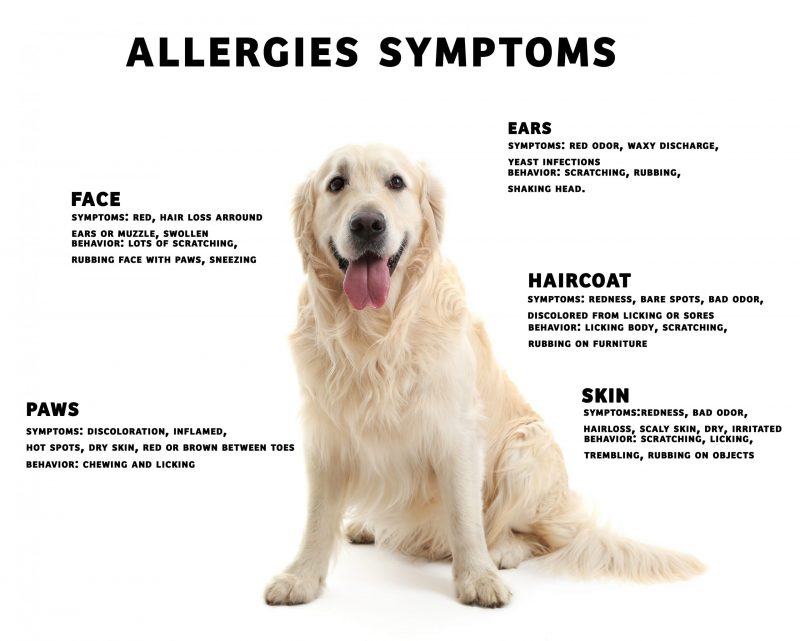As dog lovers, we want our furry friends to live happy and healthy lives. Unfortunately, dog allergies are a common issue that can cause significant discomfort. From environmental allergens to food sensitivities, various factors can trigger allergic reactions in dogs. In this article, we’ll explore the best ways to relieve dog allergies, ensuring your pet’s well-being. With a combination of natural remedies, effective products, dietary changes, and environmental control measures, you can help alleviate your dog’s symptoms and improve their quality of life.
Understanding Dog Allergies
Before diving into relief methods, it’s crucial to understand what causes allergies in dogs. Allergies occur when a dog’s immune system overreacts to substances known as allergens. Common allergens include:
- Environmental Allergens: Pollen, dust mites, mold spores, and grass.
- Food Allergens: Certain proteins found in beef, chicken, dairy, wheat, and soy.
- Flea Allergies: Saliva from flea bites.
- Contact Allergies: Reactions to shampoos, cleaning products, or materials like rubber and plastic.
Signs and Symptoms of Dog Allergies
The symptoms of dog allergies can vary depending on the type of allergy and the individual dog. Some common signs to watch for include:
- Excessive scratching, licking, or biting at the skin
- Redness, inflammation, or hot spots on the skin
- Hair loss or thinning coat
- Recurrent ear infections
- Runny/watery eyes or nose
- Sneezing or coughing
- Gastrointestinal issues (vomiting, diarrhea)
Natural Remedies for Dog Allergies
- Omega-3 Fatty Acids Omega-3 fatty acids are known for their anti-inflammatory properties. They help reduce itching and inflammation associated with allergies. You can find these in fish oil supplements or foods rich in omega-3s, like salmon.
- Quercetin Quercetin is a natural antihistamine found in fruits and vegetables. It helps block histamines that cause allergic reactions. You can supplement your dog’s diet with quercetin to manage allergy symptoms.
- Colostrum Colostrum, the first milk produced by mammals after giving birth, contains antibodies that support the immune system. Supplementing with colostrum can help build your dog’s immunity against allergens.
- Probiotics Probiotics support a healthy gut microbiome, which plays a crucial role in the immune system. A balanced gut can help reduce allergic reactions by improving overall health.
Effective Products for Dog Allergy Relief
- iHeartDogs Allergy & Itch Relief Chews for Dogs These chews are packed with beneficial ingredients like salmon oil, quercetin, colostrum, antioxidants, and probiotics. They target allergies from multiple angles, offering comprehensive relief for your furry friend.
- Hypoallergenic Dog Shampoo A hypoallergenic dog shampoo can help soothe your dog’s skin and reduce itching. Look for shampoos with natural ingredients like oatmeal, aloe vera, and coconut oil.
- Air Purifiers Using an air purifier can help remove environmental allergens like pollen, dust mites, and mold spores from your home. This can significantly reduce your dog’s exposure to airborne allergens.
Dietary Changes to Alleviate Allergies
- Elimination Diet If you suspect your dog has food allergies, an elimination diet can help identify the culprit. This involves feeding your dog a novel protein (one they haven’t eaten before) and a carbohydrate source for 8-12 weeks. Gradually reintroduce other foods to pinpoint the allergen.
- Hypoallergenic Dog Food Hypoallergenic dog foods are formulated with limited ingredients to reduce the risk of allergic reactions. Look for high-quality, grain-free options with novel protein sources like duck, venison, or rabbit.

Environmental Control Measures
- Regular Cleaning Keeping your home clean can help minimize your dog’s exposure to allergens. Vacuum regularly, wash your dog’s bedding, and use pet-safe cleaning products.
- Flea Control Effective flea control is essential for dogs with flea allergies. Use veterinarian-recommended flea treatments and maintain a clean environment to prevent infestations.
- Allergen-Free Zones Create allergen-free zones in your home where your dog can escape from allergens. This can be particularly helpful during peak allergy seasons.
Learn More about Relieving Your Dog’s Allergies!
Frequently Asked Questions About Dog Allergies
Q: Can dogs develop allergies later in life?
A: Yes, dogs can develop allergies at any age. It’s essential to monitor your dog for any new symptoms and seek veterinary advice if you suspect allergies.
Q: Are some dog breeds more prone to allergies?
A: Yes, certain breeds like Bulldogs, Retrievers, and Terriers are more prone to allergies. However, any dog can develop allergies regardless of breed.
Q: Can I give my dog antihistamines for allergies?
A: Some antihistamines are safe for dogs, but it’s crucial to consult your veterinarian before administering any medication. They can recommend the appropriate dosage and type of antihistamine for your dog’s specific needs.
Q: How long does it take to see improvement in my dog’s allergies?
A: The time it takes to see improvement varies depending on the severity of the allergies and the treatment used. Some dogs may show improvement within a few days, while others may take several weeks to respond.
Q: Can allergies cause behavioral changes in dogs?
A: Yes, allergies can cause discomfort and irritability, leading to behavioral changes. Addressing the underlying allergies can help improve your dog’s overall behavior and mood.
Q: What is the most common type of allergy in dogs?
A: Atopic dermatitis (environmental allergies) is the most common type of allergy in dogs.
Q: How can I tell if my dog has allergies?
A: Look for signs like excessive scratching, redness, hair loss, ear infections, and gastrointestinal issues.
Q: Is there a cure for dog allergies?
A: While there is no cure, allergies can be effectively managed with various treatment options.
Q: Can I give my dog human allergy medication?
A: No, never give your dog human allergy medication without consulting your veterinarian. Some medications can be toxic to dogs.
Q: What should I do if I suspect my dog has allergies?
A: The best course of action is to schedule an appointment with your veterinarian for a proper diagnosis and treatment plan.

Final Thoughts on Relieving Dog Allergies
Relieving dog allergies involves a multi-faceted approach, including natural remedies, effective products, dietary changes, and environmental control measures. By understanding the causes and symptoms of allergies, you can take proactive steps to ensure your dog lives a comfortable, healthy life. Products like iHeartDogs Allergy & Itch Relief Chews for Dogs can provide essential support, making a significant difference in your dog’s well-being. Remember, always consult your veterinarian before making any significant changes to your dog’s diet or health regimen.
Allergies are a fairly common problem in dogs, as they can be allergic to a variety of things. Whether they have food or environmental allergies, dogs are often left uncomfortable for entire seasons at a time. If you live somewhere with year-round spring and summer weather, you’re likely facing more problems than the rest of the globe. Here are some ways you can help keep your dog comfortable by easing their allergy symptoms.


